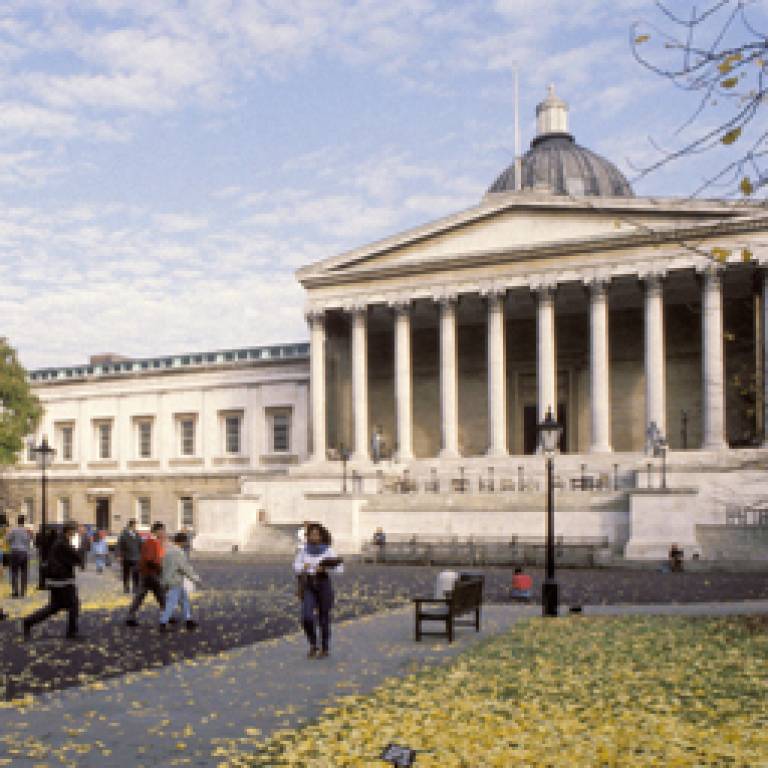UCL to boost availability of new medicines
17 November 2011
UCL has announced details of a new EPSRC Centre which will boost innovation in the manufacture of new medicines, improving cost-effectiveness and making the drugs more widely available.

The EPSRC Centre for Innovative Manufacturing in Emergent Macromolecular Therapies is being funded by a £4.9m grant from the Engineering and Physical Sciences Research Council (EPSRC), with a further £3.9m investment (cash & in-kind) provided by over 25 founding industry partners.
The Centre, which will be led by UCL in partnership with Imperial College London and The London School of Pharmacy, is part of a nationwide, £51m EPSRC investment to ensure the UK stays at the leading edge of manufacturing research. A total of eight post-doctoral researchers will undertake an integrated programme of work with a matching number of associate doctoral studentships, linked to academics outside the Centre's core. Located in the Advanced Centre for Biochemical Engineering at UCL, the pioneering focus of work will be on antibody-based drugs for diseases such as cancers, severe arthritis and multiple sclerosis.
The EPSRC Centre has been established in order to address a range of emerging manufacturing challenges facing the UK biopharmaceutical sector. By lowering the manufacturing costs of drugs, it will simultaneously widen access to these therapies and reduce pressure on NHS budgets.
The vision for this EPSRC Centre is to effect a set of radical changes, making potential new therapies more generally available at a cost the economy can sustain.
Professor Nigel Titchener-Hooker, UCL Biochemical Engineering and Director of the new EPSRC Centre
Speaking to academic and industry collaborators at the launch of the EPSRC Centre Prof. Nigel Titchener-Hooker (Professor of Biochemical Engineering at UCL and Director of the Centre) said, "This is a significant gain for UK bio-processing research and knowledge exchange. The new EPSRC Centre aims to improve the manufacture of macromolecular medicines, which are more costly to manufacture and use than conventional medicines."
"If the manufacturing process and design of the final medicine are poor, costs rise and patient access is restricted due to budget pressures on providers such as the NHS. The vision for this EPSRC Centre is to effect a set of radical changes, making potential new therapies more generally available at a cost the economy can sustain."
Professor Dave Delpy, the EPSRC's CEO, said, "Our Centres for Innovative Manufacturing are part of a new approach to maximise the impact of innovative research for the UK. They receive five years funding to retain staff, develop collaborations, carry out feasibility studies, and support up to two research projects. This lays firm foundations on which we hope further investment, including that from industry, can build. We have recently issued a call for the research community and business to present a case for further centres addressing other areas of innovation."
-Ends-
Media contact: Dave Weston
Image: UCL's main campus, home to the EPSRC Centre for Innovative Manufacturing in Emergent Macromolecular Therapies
 Close
Close

